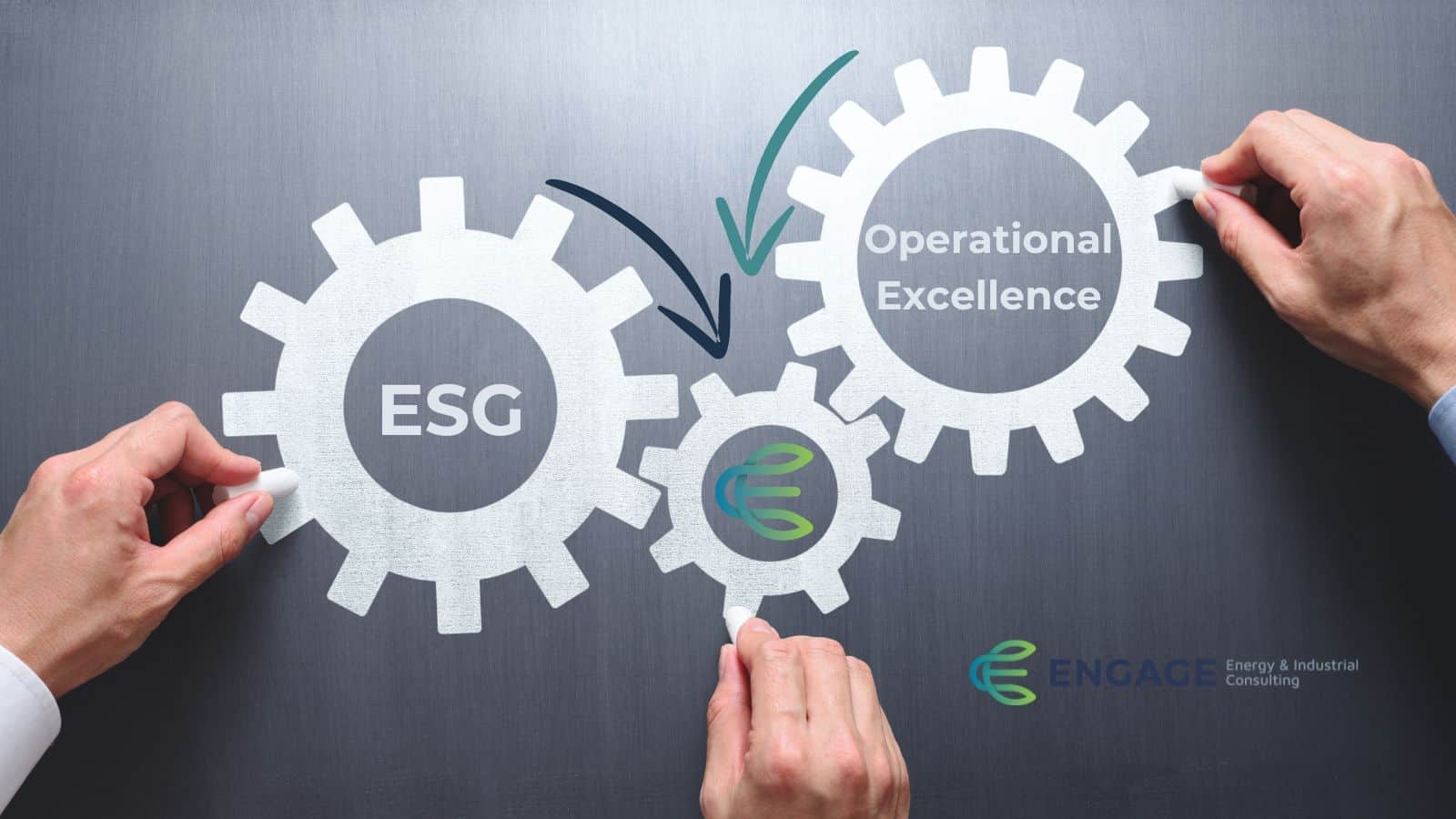If you are a business owner, board director, or CEO, one question should be front and center in your business strategy discussions. That is, “What is my company’s plan to get to Net Zero?”. Your ability to access capital, respond to supply chain requirements, mitigate risk, and act in response to changing stakeholder demands may depend on it.
Net Zero, or Carbon Neutrality, refers to the balance between the amount of greenhouse gas (GHG) your company produces versus the amount your company removes from the atmosphere. Net Zero is achieved when the amount you add is no more than the amount taken away. Net Zero has become a mandate for many countries and businesses, and a key driver of their sustainability strategy.
The principles of sustainability are organized around three pillars:
- Environmental – Your company’s impact on energy consumption, water and effluents, biodiversity, greenhouse gases (GHG) emissions, and waste.
- Social – Your company’s focus on employment regulations, health and safety, training and education, and your contribution to the communities and stakeholders you serve.
- Governance – Your company’s policies, management systems, decision support, internal controls, risk management, compliance with laws and regulations.
Sustainability and ESG is about meeting the needs of the present without compromising the ability of future generations to meet their needs, and in so doing, enhancing your company’s ability to create long-term value. Corporate leaders are being continually challenged on the question of how the businesses they serve contribute to or mitigate the myriad of ESG issues that face us today, with GHG emissions at the top of the list.
Companies are using their influence to drive change in sustainable business practices such as energy procurement and consumption, and they are holding suppliers responsible for environmental performance, workplace safety, and basic human rights. By proactively acknowledging these impacts on our world, we are recognizing that ESG directly affects business profitability and the long-term viability of your company.
From hi-tech companies like Apple and Microsoft, to diversified energy companies like Shell and British Petroleum, corporations around the globe are making public declarations and setting timetables to get to their company to Net Zero. According to the United Nations, “more than 130 countries have now set or are considering a target of reducing emissions to Net Zero by mid-century (2050). While Net Zero is a critical longer-term goal, steep emissions cuts – especially by the largest greenhouse-gas emitters – are imperative in the next 5 to 10 years to keep global warming to no more than 1.5 °C and safeguard a livable climate.”
There is a growing societal expectation of corporate leaders to take a stand or engage in outright activism regarding important environmental and social topics. Company leaders are facing pressure from political activists, social media, customers, employees, and their communities to choose a side and make investment decisions based on the issues held dear by these stakeholders.
In many instances, leaders are being compelled to provide public statements that clearly articulate their policies on subjects such as immigration, diversity, community investment, and their plans to fight climate change. Many countries have already or will be instituting mandated ESG reporting requirements that include GHG emissions. In the US, ESG reporting is still voluntary and considered a form of self-regulation. We believe this self-regulation will give way to mandated compliance and disclosure requirements during the Biden administration.
Choosing to ignore the importance of Sustainability and ESG is to ignore the inherent recognition of its impact on our environment, your bottom line, and your relationships with your customers. For the consumer, a company’s approach to ESG often influences their buying decisions more than price, it also impacts how a consumer feels about your brand and their likelihood to do business with you.
We believe sustainability is more than just “going green”, it is a deliberate and measurable way of conducting business. If you are not preparing yourself for the eventual changes that will be demanded to get to a Net Zero way of life, you risk the very existence of your business. If you have not begun this process, there is no time to waste. Developing a sustainability and ESG strategy will help create the culture you desire and infuse a sense of shared purpose at every level of your organization.
As the countdown to Net Zero begins, your strategy and implementation plan to get your company to Net Zero will be a key factor in your future success. Climate change and its disastrous effects on our planet will impact everyone. Companies achieving Net Zero emissions is at the heart of this fight.





